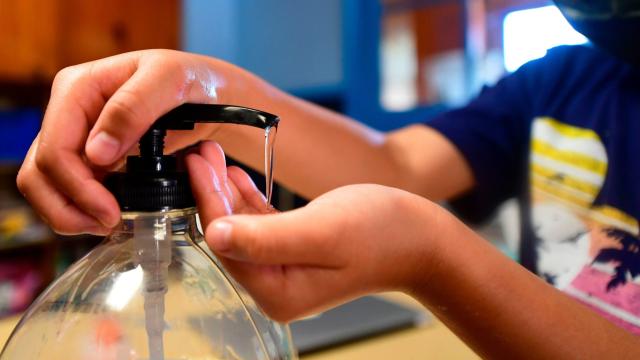The harms of the covid-19 pandemic go well beyond the illnesses and deaths directly caused by the virus. One particular repercussion, according to a new study out Thursday, has been more kids getting hurt from alcohol-based hand sanitiser ending up in their eyes.
The study, published in JAMA Ophthalmology, looked at data from poison control centres in France. They found that calls related to hand sanitiser eye injuries in children shot up dramatically in 2020 compared to the year before. Between April and late August in 2020, there were seven times as many of these calls than during the same time period in 2019 — enough to account for nearly 10 per cent of all eye-related calls involving children.
Admissions to a specialist pediatric eye hospital in the country also increased during that time. In six cases, the injury was so severe that it caused ulcers covering more than half of the children’s corneas. And in two cases, the children required amniotic membrane eye grafts.
While the findings are limited to France, other countries have also reported a spike in hand sanitiser-related injuries during the pandemic, including the U.S. Many of these cases involve children accidentally ingesting sanitiser, but there have been earlier reports of eye injuries caused by hand sanitiser as well.
The study authors have a theory as to why eye injuries specifically are on the rise. Hand sanitiser dispensers have become ubiquitous in public places and buildings, and while they might be conveniently placed for an adult’s hands to reach easily, they’re often at just the right height for a kid to get doused in the eyes by accident. As some evidence for this theory, the authors found a large increase in related poison control calls where the incident happened in public. This might also account for the severity of these injuries, since the caretaker could be less able to get the child to a sink to quickly wash out the sanitiser in a public setting.
With the pandemic still in full swing, the authors argue that more has to be done to keep kids safe from these eye injuries.
“To maintain good public compliance with hand disinfection, these findings support that health authorities should ensure the safe use of alcohol-based hand sanitisers,” they wrote. “Caution in positioning the dispensers in public places, in addition to informative illustrations emphasising the risk of unintentional exposures in children, are required in all countries to prevent further severe ocular injury.”
